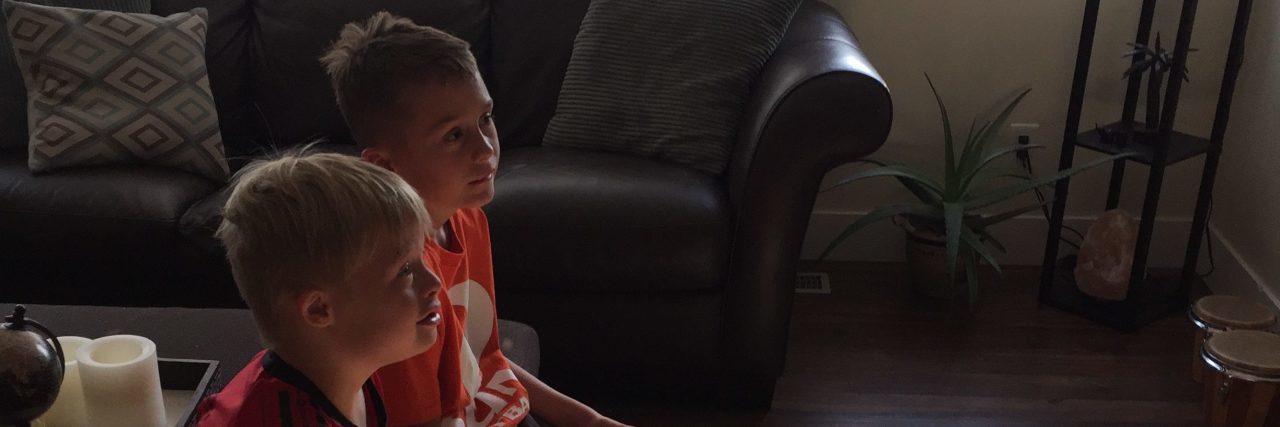We Need Allies to Stand by Our Side for Our Kids With Disabilities
I’ve watched and read a lot of news lately that has covered colorful, positive events like the Pride parades as well as not so positive events like Charlottesville. I’ve witnessed the straight community walking alongside LGBTQ at the Pride parades, including our very own Prime Minister, Justin Trudeau, to celebrate love, diversity, acceptance and peace. I was moved by the anti-racism counter-protesters walking along each other and supporting each other, embracing the beauty of different race, color and creed.
What struck me was that in order for marginalized groups to thrive, belong, feel accepted and safe, they need to have allies.
It made me think about our lives and the truth is, people with disabilities need allies, too.
For our family, we need parents and children of the “typical” community to stand with us. This reality has smacked me in the face recently. I mean, if we don’t have allies, how can we move forward towards inclusion, acceptance and tolerance of people with disabilities? There still seems to be so much fear, misunderstanding and avoidance of the subject of disability. However, I am inspired by the outpouring of love, support and inclusion that I bear witness to in our little life each day.
Allies are a reflection of the good.
Allies show me the world I want to live in — a more loving, tolerant and peaceful one.
Allies push out the evil and the ignorant, just by standing beside us. They are so valuable to us — by “us” I mean anyone as the “other.”
The experience of the other.
I will admit, I’ve lived a charmed life as a white, middle class Canadian kid. I mean, we weren’t rich but we had it all: a great family, a vacation once a year, opportunities and access to education, sports and anything we really wanted. I didn’t realize my own privilege until I went to school to study Social Work, where I learned about oppression, feminism and racism, and the intersections of those things. Still, I had never really experienced being on the “outside.”
That was until one day in 2009 when I gave birth to my first born son, who we we’re told had Down syndrome. Of course all the things we feared about having a child with a disability flooded in to our minds. Will he be accepted, be bullied, made fun of? How will he make it in the big world?
The truth is, I’m sure he is made fun of at times, and he is not always accepted. I remember eating at a food-court in the Mall with our family and my 4-year-old typical son asked “why is everybody staring at us?” Truth is, you get used to the stares, but that experience of the outside can be a bit lonely. It can be hard to relate to other parents when their 8-year-olds are in very different places than mine. I’ve worked really hard in my own community to set up a Down syndrome collective so my son can relate to others like him; and for us all feel part of a supportive community. I cherish that group and have made some lifelong friendships through having my son.
I’ve also had friends and people say to me, in response to him being lonely and isolated, “your son must have a lot of friends, you run the Down syndrome group.” Reality is, kids with disabilities often have challenges interacting with each other due to social skills deficits, language problems and delayed emotional maturity. We often have to support and scaffold these relationships and hope they bloom. And just like any group of people, our kids have their own personalities, likes and dislikes, and having and extra chromosome does not make them all compatible!
So while our kids need people like them, people with disabilities need allies, too.
They need their typical siblings, peers and classmates to take a chance on them and show them the ropes; allow them to be part of something.
We are grateful for the allies we have in our life.
My son adores his classmates and friends and he craves the connection of others. I am grateful my son has a wonderful brother and a few friends that knock on our door and ask him to play. They try hard to understand his muddled speech, and offer him patience and compassion every day. More than me sometimes. He is invited to road hockey and backyards. His mighty allies hold him accountable for his screw-ups and praise his accomplishments. And let me tell ya, it means the world coming from his peers.
Our kids’ allies are invaluable to us — they show others to not be afraid and they show our children they have value despite their differences. That they are valued.
I hope these friendships last, I am mindful they may outgrow and out-mature my son’s abilities. For now, I am grateful for our allies, as they show my son and our family that inclusion, tolerance and acceptance starts with one child saying “yes, let’s give him a chance.”
I encourage you all to be an ally, give someone a chance, stand up, and let others know you stand for a kind and compassionate community. Trust me, we need ya.
We want to hear your story. Become a Mighty contributor here.

